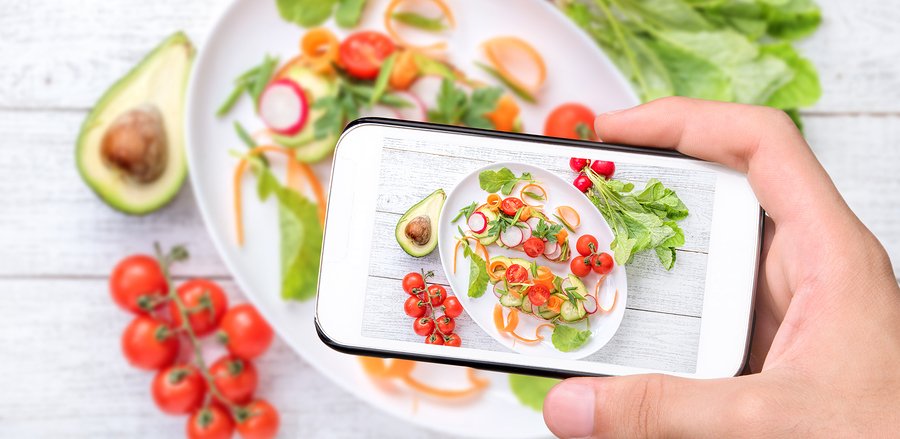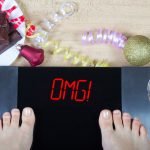If you’re an Instagram user, you probably love showing your followers all the great pictures you take. Selfies on fun trips, nights out with friends, and of course pictures of your pet. You might even share photos of a special meal at a favorite restaurant or a decadent dessert you’ve ordered. But it may not have occurred to you that Instagram—with its unique focus on images—can potentially serve as a way to improve your eating habits. In fact, new research suggests that this social media platform may be a useful tool for dietary support.
The study, which took place at the University of Washington in Seattle, found that people posting photos on Instagram of all of the foods they’ve consumed in a day may help them form better eating habits and achieve weight loss.1 Jennifer Langston. “Food photos help Instagram users with healthy eating.” University of Washington. 26 April 2017. Accessed 30 April 2017. http://www.washington.edu/news/2017/04/26/food-photos-help-instagram-users-with-healthy-eating/. The experiment was designed to replace using a food journal or app to keep track of every item eaten throughout the day with a more public forum. This way, the individual has a group of followers keeping an eye on what is being posted and providing a source of encouragement and support.
There are some definite advantages to monitoring your diet through Instagram. First of all, it’s handy, and foods can be logged immediately since few of us are ever without our phones these days. So whether you are eating at home, in a restaurant, at a friend’s house, or at your desk at work, you can immediately take a photo and post it on Instagram. It ensures that you to capture the image right away, so even if you don’t post the picture at that moment it’s recorded for you, which removes the possibility of forgetting about something you ate hours earlier.
Another positive aspect is the cheering section that can form from your followers. You don’t have to post these food images on your regular account that is viewed by all of your family and friends. Instagram allows users to create additional accounts under their profile, so you can dedicate one as your online food journal and ask friends who are also interested in healthy eating to follow you—as you likewise follow them.
Through this forum, you can offer each other support, share nutritious recipes, and provide reminders not to give up if you give in to the temptation of unhealthy eating for a few days. Instagram can act as a sort of virtual Weight Watchers in which you have a group support system and have people checking on your progress regularly.
Of course, there are downsides to this approach as well. As with traditional food journaling, you need to be scrupulously honest about including everything you eat. Even grabbing a handful of M&Ms from a co-worker’s desk should be documented and included in your tally. After all, a few hundred extra calories here and there will quickly add up.
And that goes for the photos you take as well. For example, let’s say you make a sandwich with bacon and cold cuts or slathered in a sauce high in sugar and sodium, then attempt to make it look more nutritious by only showing the whole grain bread, lettuce, and tomato in the picture. That clearly isn’t going to benefit you in the long run. For the program to work, you have to admit your bad habits and face them down rather than to try to gloss over them. Another area that may be problematic is portion control. You can make a portion appear smaller than it is by placing it on a larger plate. This might make it seem that you are eating less, but in reality you are only harming yourself.
The research that was conducted on this topic has not actually yielded any conclusive results yet. Only 16 subjects were included, and they have not been tracked for long-term outcomes. So we know how they have proceeded with their Instagram use but not whether they will stick with it or whether it will truly help them to improve their eating habits and lose weight.
But ultimately, if this sounds appealing to you as a way to be held accountable for a healthier lifestyle, there’s no harm in trying. We live in a digital world, so we might as well see if we can reap some health benefits from it.
References
| ↑1 | Jennifer Langston. “Food photos help Instagram users with healthy eating.” University of Washington. 26 April 2017. Accessed 30 April 2017. http://www.washington.edu/news/2017/04/26/food-photos-help-instagram-users-with-healthy-eating/. |
|---|












Thank you for sharing
Thank you for sharing